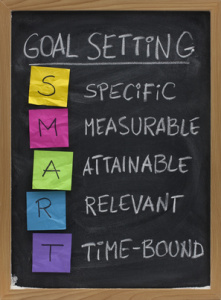The start of each year marks a new beginning, and is a popular time to make health resolutions. The crowded gyms in January are a sign that many people are setting health goals; but by March it’s typically “just the regulars” at the gym, leaving many to wonder if New Year’s resolutions are waste of time. . .
The answer is no. Any time is a good time for people to resolve to improve their health, and a growing body of research suggests a “fresh start effect” (nicely summarized in this article) showing that setting health goals after significant landmark dates can improve chances for success.
Changing health behaviors is difficult, but certainly not impossible: it helps if you view the change as a process, and not a one-time effort. You should expect some ups and downs as you try to achieve new goals. Remember to celebrate small successes, and don’t blame yourself if you fail. Instead, try to figure out what barriers stood in your way to help you devise a better plan to succeed.
7 Strategies for Successful Health Change
Be realistic. Setting realistic goals will help you achieve better results.

Make a plan. Think about the changes you need to make to achieve your goal and make a plan. Most experts recommend setting achievable short-term goals that will help you meet your ultimate goal.
Be confident & committed. Individuals who believe that they can change their behavior have a much better chance at succeeding.
Be positive. Think of adding new healthful behaviors instead of focusing on what you’re giving up. For example, if you’re trying to reduce your intake of a favourite junk food (for example, potato chips or soda), focus on healthful foods you can add to your diet, instead of thinking about foods you need to consume less often.
Plan for lapses. Consider situations that have prevented you from achieving your goals, and figure out what you will do when these circumstances arise.
Review your surroundings. Remove cues that may lead to unhealthy behaviors, and surround yourself with things that will help you achieve your goals: for example, healthful snacks are more likely if you remove the cookies from your pantry but keep bright fruits and vegetables visible. You’ll find some good tricks here.
Keep track of your progress. Regular monitoring and feedback is very helpful for changing a behavior. Keep track of your progress with diaries, charts, notes on a calendar, or regular weight checks.
Here’s a great video on evidence and strategies for New Year’s resolutions by Dr. Mike Evans.
Share This:
